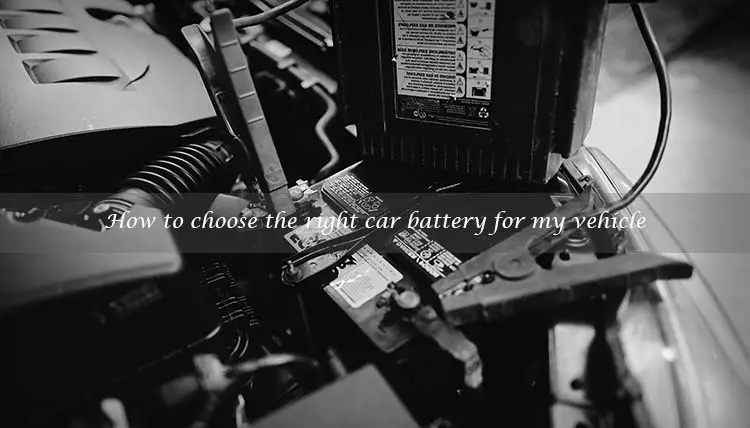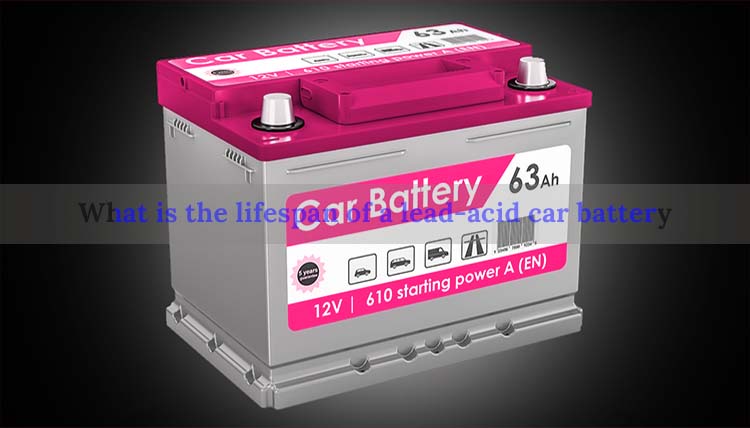Nothing is worse than being ready to head out, only to find your car battery dead. Few things can leave you stranded faster than an unexpected battery failure. But batteries don’t die without warning. By understanding the factors determining battery lifespan and looking for telltale signs of trouble, you can accurately predict when it’s time for a new one.
With proper maintenance and care, a typical car battery lasts 3-5 years. Knowing how to maximize your battery’s life expectancy is vital for savvy drivers who want to avoid untimely breakdowns. This article will explore everything from battery types to driving habits that impact longevity. You’ll learn how to squeeze every mile out of your car battery.

Factors Affecting Car Battery Lifespan
The lifespan of a car battery is influenced by a complex interplay of several key factors, each contributing to how long it will reliably power your vehicle. Understanding these factors will help you make the right decisions to extend your car battery’s life.
1. Climate:
Both extreme heat and cold can affect the chemical reactions inside the battery. In hot climates, high temperatures can cause the battery’s fluid to evaporate, while cold weather reduces its ability to provide sufficient power. This makes it crucial to consider your local climate when estimating battery life.
2. Usage Patterns:
Frequent short trips with many starts and stops can strain the battery, as it doesn’t have enough time to recharge fully. On the other hand, long drives help the alternator recharge the battery effectively. The more you use accessories like air conditioning, lights, or entertainment systems, the more strain it puts on the battery.
3. Battery Type:
The type of battery installed in your vehicle also affects lifespan. Lead-acid batteries are common, affordable, and suitable for most cars. AGM (Absorbent Glass Mat) batteries are more durable and can withstand deep discharges, making them ideal for modern vehicles with advanced features. Some electric cars use lithium-ion batteries, which have a longer lifespan but are more expensive.
4. Maintenance:
Perhaps the most critical factor is how well you maintain your battery. Regular check-ups, such as ensuring clean and corrosion-free terminals, can prevent electrical resistance. Additionally, checking and maintaining the proper fluid levels in conventional batteries is vital.
5. Charging Habits:
How you charge your battery can impact its lifespan. Overcharging or undercharging can lead to sulfation (sulfur buildup on the lead plates), reducing battery capacity. Using a suitable battery charger and ensuring your vehicle’s charging system is in good condition is essential.
6. Age and Quality:
Older batteries naturally have a shorter life expectancy. Quality also matters – reputable brands typically produce longer-lasting batteries.
See Also: How long to leave a car running to charge battery?
How long does a car battery last: The average lifespan
The typical lifespan of a car battery varies based on several factors but generally falls within a range of 3-5 years for most standard lead-acid batteries.
According to industry experts, there are several key determinants of battery lifespan:
- Battery type – Conventional lead-acid batteries last 3-4 years on average. Heavy-duty and AGM batteries can last 4-6 years. Lithium-ion may last 5-10 years.
- Climate – Colder regions can shorten battery life to 2-3 years. Hot temperatures also cause faster deterioration.
- Vehicle use – Short trips, stop-start driving, and excessive idling strain the battery. Infrequent long highway drives help recharge it.
- Maintenance – Poor maintenance and dirty/corroded connections rob power and longevity.
Statistics show that standard car batteries average a lifespan of 36-60 months or 3-5 years:
- In a 2019 study, AAA found batteries last 3-5 years on average before failure.
- Consumer Reports states most batteries need replacement between 3-6 years, depending on conditions.
- Interstate Batteries estimates 35-60 months for a new car battery under regular service.
Electric vehicle batteries vary quite a bit from standard car batteries:
- EV batteries are designed for extended lifecycles of 5-10 years or more.
- Tesla Model S/X lithium-ion batteries are estimated to retain 70% capacity after 300,000 miles.
- Nissan Leaf batteries are warranted for loss of capacity for eight years or 100,000 miles.
- Replacement EV batteries are costly – between $3,000-$10,000, depending on the vehicle.
Proper maintenance and charging habits can help maximize the lifespan of any car battery. Knowing the average replacement intervals will help drivers plan for this typical vehicle expense.
Signs of a Failing Battery
A car battery gradually loses its ability to hold a charge as it ages. Knowing the warning signs of a dying battery gives drivers critical time to address issues before being left stranded.
Key indicators include:
1. Slow Cranking:
One of the most noticeable signs of a failing battery is when your engine cranks slowly when starting. It feels like the engine is struggling to turn over. If you notice this, it indicates that your battery’s power output is diminishing.
2. Dimming Lights:
When you start your vehicle, do the dashboard or interior cabin lights dim significantly? Dimming lights, especially during engine startup, can indicate a weak battery. This is because the battery has to divert power to the starter motor, causing a momentary voltage drop.
3. Electrical Issues:
If your electrical components, such as power windows, radio, or headlights, behave erratically or don’t function properly, it can be a sign of battery trouble. The battery provides power to these components, and a weakening battery can result in electrical issues.
4. Warning Lights:
Modern vehicles are equipped with warning lights on the dashboard. A battery or charging system warning light may illuminate if there’s an issue with the battery. If you see this warning light, it’s crucial to address the problem promptly.
5. Swollen Battery Case:
Sometimes, a failing battery may have a swollen or bloated case. This occurs due to excessive heat or overcharging. A swollen battery is a clear indication that it needs replacement.
6. Unpleasant Odor:
If you notice a sulfuric or rotten egg-like odor around your battery, it could be a sign of a malfunctioning battery. This odor can result from a battery overcharging or leaking.
Here are some practical tips for extending the life of your car battery:
Regular maintenance is vital to maximizing battery lifespan. Clean the terminals at least every few months by removing corrosion buildup with a wire brush or baking soda/water mixture. Loose, dirty, or oxidized connections rob power. Ensure cables are tightly clamped.
- Check the charge monthly and after long periods of inactivity. Use a portable voltmeter to check the charge level (12.4V – 12.6V is ideal). Recharge as needed to prevent sulfate crystals from forming inside.
- Avoid deeply discharging the battery. Don’t leave lights, radio, or accessories running for long when the engine is off. Discharging below 12.2V causes permanent damage over time.
- Let the vehicle run for 15-20 minutes after jumping to allow the alternator to fully recharge the battery after being depleted. Jumping should be rare, not routine.
- Store unused vehicles with the negative cable detached to reduce parasitic drain. Fully charge the battery first and place it on a trickle charger if storing it for months.
- Minimize excess weight and accessory use, which taxes the charging system over time. Remove roof racks/gear when not needed.
- Drive long enough distances regularly to allow the alternator to charge the battery fully—short trips and excessive idling strain the battery.
- Avoid parking in extremely hot or cold temperatures when possible. Heat and cold accelerate chemical reactions that reduce lifespan.
- Consider a battery tender or trickle charger to automatically maintain charge if you have an older battery or don’t drive frequently.
- Following simple maintenance habits and minimizing battery-draining conditions will maximize performance and extend the lifespan of your car battery.
Conclusion
Knowing when to replace your car battery is vital to avoid being stranded with a dead one. While they typically last 3-5 years, keep an eye out for signs like corrosion, damage, difficulty starting, and odd smells indicating aging batteries. Don’t ignore these warnings—a little preventive maintenance goes a long way. Regularly inspect your battery, clean terminals, and perform voltage checks. With some simple care, you can maximize the lifespan of your car battery. But once those failure signs appear, replacement is the most innovative option for reliable starts. Don’t get caught off guard by an expired battery.



